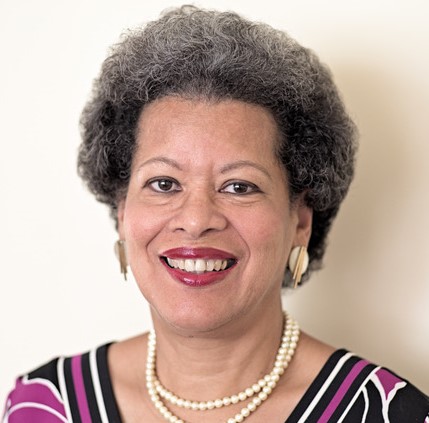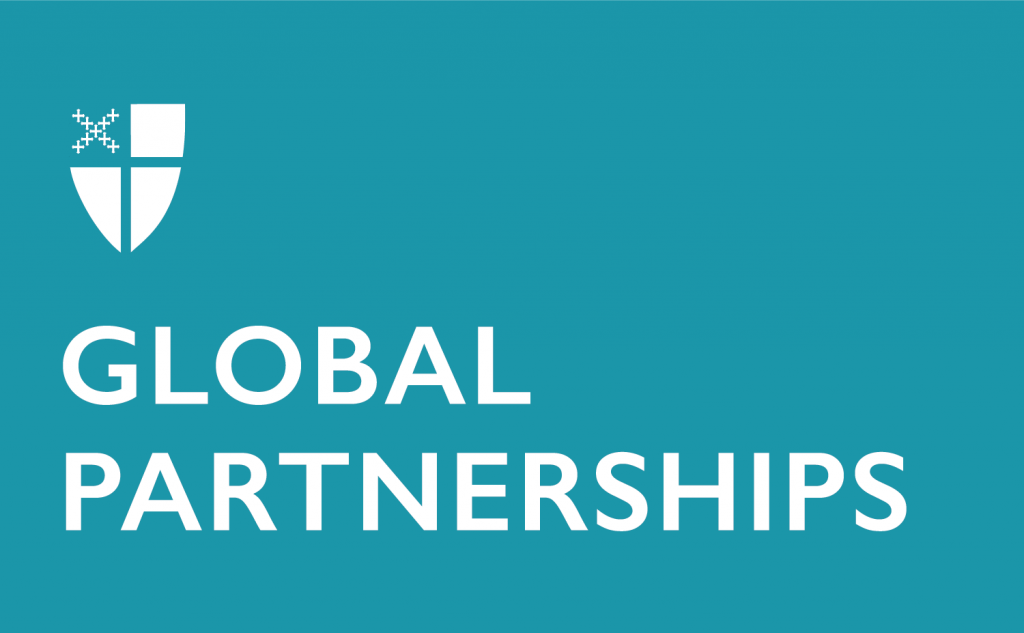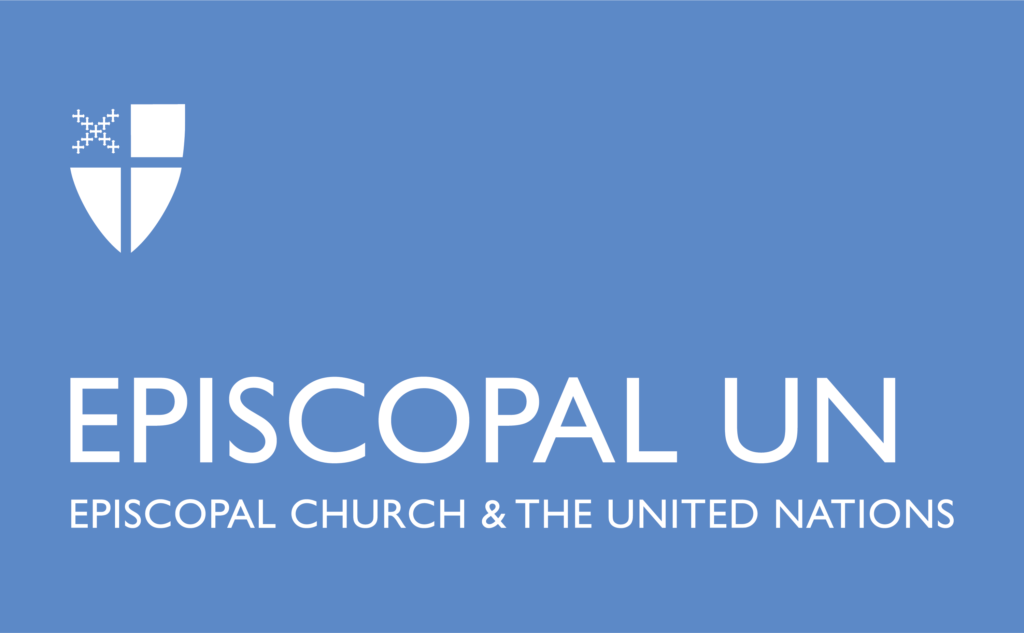Bankrupting the Business of Human Trafficking

By: Yvonne O’Neal, Diocese of New York
Today, January 11th, is Human Trafficking Awareness Day. January is National Modern Slavery and Human Trafficking Awareness Month. How can we end the illicit lucrative business of human trafficking that nets $150 billion annually? Human trafficking is a crime against humanity.
The International Labour Organization (ILO) estimates that 40.3 million people are victimized, including 24.9 million in forced labour and 15.4 million in forced marriage. This means that there are 5.4 victims of modern slavery for every 1000 persons in the world. Sadly, one in four victims of modern slavery are children [1]. This vast supply and demand network, exacerbated by the COVID pandemic, brings untold suffering to more victims.
To address this dire situation and to consider ways of bankrupting this business, The Episcopal Church was a sponsor of a civil society-led webinar at the United Nations last December 1st, Bankrupting the Business of Human Trafficking-101. Moderated by journalist Conny Czymoch, the panelists were Ambassador Mitch Fifield of Australia, Beate Andrees of ILO, Special Representative of the Secretary-General on Violence Against Children Najat Maalla M’jid, and the person who was behind the idea for this webinar, Rosalee Keech of the League of Women Voters.
In her remarks, Ms. Keech noted, “The goal is to eradicate all forms of forced labour and trafficking. .. (which) we hope will inspire those working at the United Nations, governments, law enforcement and the judiciary, the private sector and civil society to engage in activities that bankrupt the traffickers. There will be a never-ending supply of victims if this industry is allowed its illicit profits.”
Australia has one of the most comprehensive antislavery acts with its Modern Slavery Act of 2018. Both government and private sector in Australia must report on their actions to combat modern slavery risks in their global supply chains. Rather than imposing financial fines, Ambassador Fifield noted that in Australia, “We see the risk of reputational damage and market and consumer pressure as the most effective driver of compliance.” We shall see if this has adequate compliance impact. However, to combat the supply and demand chain of human trafficking, no one country can do it alone. There must be increased and cross-cultural regional and international partnerships such as the Bali Process, which has raised regional awareness of the consequences of people smuggling, trafficking in persons, and related transnational crime.
Dr. M’jid, a pediatrician, was passionate about her concern for children in this supply chain and noted that trafficking is one of the worst forms of violence against children. With COVID-19 cases ever increasing, in an industry in which 30 percent of all detected victims are children, most of them girls, the pandemic creates circumstances that may increase the risk of trafficking, inhibit identifying those who are trafficked, and make it more difficult to deliver comprehensive services to support the transition out of trafficking and survivor recovery. Dr. M’jid explains that besides the financial cost, there is the human cost of physical, sexual, and mental health and the cognitive, emotional, and relational development of children.
All the panelists agreed that legislation can assist in changing behavior. Comprehensive legislation is needed that will ban this violence and exploitation. The current rates of impunity for perpetrators must end, as trafficking prosecutions lag appallingly behind the numbers of offenses and victims identified. Within the business cycle which enables the trafficking to take place, corruption and money laundering is a key aspect, and one which needs focus, interregional cooperation, and significant resources to address.
What can Episcopalians and people of goodwill do to prevent human trafficking? First, we have to be aware that it is happening right in our neighborhoods. We must raise awareness in our congregations. We must educate ourselves about companies that might be benefiting from forced labour. We must ask ourselves some questions: Was the chocolate I love made with cacao beans picked by child slaves? Were my clothes made by trafficked migrant women? Does my favorite airline have a human trafficking policy? Are the workers in my hotel trained to spot trafficking victims? What is our attitude to the use of on-line pornography? Does our public attitude to purchasing sex match our behaviors or our understanding of radical equality and respect between genders? Are my personal investments and my pension plan invested in companies that profit from modern slavery and forced labour, or at the very least lacking clear policies on keeping their supply lines and investment arenas transparent in their resistance to exploitation? How is The Episcopal Church advocating for anti-trafficking policies?
[1] International Labor Organization. Forced labour, modern slavery and human trafficking.
About the author: Yvonne O’Neal is committed to social justice and human rights advocacy and has found a platform on One Boat: International Chaplaincy for Covid Times. A member of the Standing Committee of the Diocese of New York, she serves on the Task Force Against Human Trafficking and the Task Force on Domestic Violence and Sexual Assault. She is a member of the NGO Committee to Stop Trafficking in Persons and the Executive Committee of NGO CSW/NY. Yvonne is serving her first term on the Board of Trustees of the Church Pension and The Church Club of New York. She is a warden at the Church of the Holy Trinity in Manhattan.
Quebrar el negocio de la trata de personas

By: Yvonne O’Neal, Diocese of New York
Hoy, 11 de enero, es el Día de Concientización sobre la Trata de Personas. Enero es el Mes Nacional de Concientización sobre la Esclavitud Moderna y la Trata de Personas. ¿Cómo podemos acabar con el lucrativo negocio ilícito de la trata de personas que genera 150.000 millones de dólares anuales? La trata de personas es un crimen de lesa humanidad.
La Organización Internacional del Trabajo (OIT) estima que 40,3 millones de personas son víctimas, incluidos 24,9 millones en trabajos forzados y 15,4 millones en matrimonios forzados. Esto significa que hay 5,4 víctimas de la esclavitud moderna por cada 1000 personas en el mundo. Lamentablemente, una de cada cuatro víctimas de la esclavitud moderna son niños [1]. Esta vasta red de oferta y demanda, exacerbada por la pandemia de COVID, trae un sufrimiento incalculable a más víctimas.
Para abordar esta terrible situación y considerar formas de llevar a la bancarrota este negocio, la Iglesia Episcopal fue patrocinadora de un seminario web dirigido por la sociedad civil en las Naciones Unidas el 1 de diciembre pasado, Poniendo en Bankrupting the Business of Human Trafficking – 101. Moderado por la periodista Conny Czymoch, los panelistas fueron el Embajador Mitch Fifield de Australia, Beate Andrees de la OIT, la Representante Especial del Secretario General sobre la Violencia contra los Niños Najat Maalla M’jid, y la persona que estuvo detrás de la idea de este seminario web, Rosalee. Keech de la Liga de Mujeres Votantes.
En sus comentarios, la Sra. Keech señaló: “El objetivo es erradicar todas las formas de trabajo forzoso y trata … (que) esperamos que inspire a quienes trabajan en las Naciones Unidas, los gobiernos, las fuerzas del orden y el poder judicial, el sector privado y la sociedad civil para participar en actividades que arruinen a los traficantes. Habrá un suministro interminable de víctimas si a esta industria se le permiten sus ganancias ilícitas “.
Australia tiene una de las leyes contra la esclavitud más completas con su Ley de esclavitud moderna de 2018. Tanto el gobierno como el sector privado en Australia deben informar sobre sus acciones para combatir los riesgos de la esclavitud moderna en sus cadenas de suministro globales. En lugar de imponer multas financieras, el Embajador Fifield señaló que en Australia, “Vemos el riesgo de daño a la reputación y la presión del mercado y del consumidor como el motor más eficaz del cumplimiento”. Veremos si esto tiene un impacto de cumplimiento adecuado. Sin embargo, para combatir la cadena de oferta y demanda de la trata de personas, ningún país puede hacerlo solo. Debe haber alianzas regionales e internacionales crecientes e interculturales, como el Proceso de Bali, que ha aumentado la conciencia regional sobre las consecuencias del tráfico ilícito de personas, la trata de personas y los delitos transnacionales conexos.
La Dra. M’jid, pediatra, estaba apasionada por su preocupación por los niños en esta cadena de suministro y señaló que la trata es una de las peores formas de violencia contra los niños. Con los casos de COVID-19 en constante aumento, en una industria en la que el 30 por ciento de todas las víctimas detectadas son niños, la mayoría niñas, la pandemia crea circunstancias que pueden aumentar el riesgo de trata, inhibir la identificación de quienes son víctimas de la trata y hacerla más Es difícil brindar servicios integrales para apoyar la transición de la trata y la recuperación de sobrevivientes. El Dr. M’jid explica que además del costo financiero, está el costo humano de la salud física, sexual y mental y el desarrollo cognitivo, emocional y relacional de los niños.
Todos los panelistas estuvieron de acuerdo en que la legislación puede ayudar a cambiar el comportamiento. Se necesita una legislación integral que prohíba esta violencia y explotación. Las tasas actuales de impunidad de los perpetradores deben terminar, ya que los enjuiciamientos por trata de personas van muy por detrás del número de delitos y víctimas identificadas. Dentro del ciclo económico que permite que se produzca la trata, la corrupción y el blanqueo de capitales es un aspecto clave que requiere atención, cooperación interregional y recursos importantes para abordar.
¿Qué pueden hacer los episcopales y las personas de buena voluntad para prevenir la trata de personas? Primero, debemos ser conscientes de que está sucediendo en nuestros vecindarios. Debemos concienciar a nuestras congregaciones. Debemos informarnos sobre las empresas que podrían beneficiarse del trabajo forzoso. Debemos hacernos algunas preguntas: ¿El chocolate que amo fue elaborado con granos de cacao recogidos por niños esclavos? ¿Mi ropa fue hecha por mujeres migrantes víctimas de trata? ¿Mi aerolínea favorita tiene una política de trata de personas? ¿Están los trabajadores de mi hotel capacitados para detectar víctimas de trata? ¿Cuál es nuestra actitud hacia el uso de pornografía en línea? ¿Nuestra actitud pública hacia la compra de sexo coincide con nuestros comportamientos o nuestra comprensión de la igualdad radical y el respeto entre los géneros? ¿Mis inversiones personales y mi plan de pensiones se invierten en empresas que se benefician de la esclavitud moderna y el trabajo forzoso, o al menos carecen de políticas claras para mantener transparentes sus líneas de suministro y arenas de inversión en su resistencia a la explotación? ¿Cómo aboga la Iglesia Episcopal por políticas contra la trata de personas?
Acerca del autor: Yvonne O’Neal está comprometida con la justicia social y la defensa de los derechos humanos y ha encontrado una plataforma en One Boat: International Chaplaincy para Covid Times. Miembro del Comité Permanente de la Diócesis de Nueva York, es miembro del Grupo de trabajo contra la trata de personas y del Grupo de trabajo sobre violencia doméstica y agresión sexual. Es miembro del Comité de ONG para Detener la Trata de Personas y del Comité Ejecutivo de la ONG CSW / NY. Yvonne cumple su primer mandato en la Junta de Fideicomisarios de Church Pension y The Church Club of New York. Es directora de la Iglesia de la Santísima Trinidad en Manhattan.


